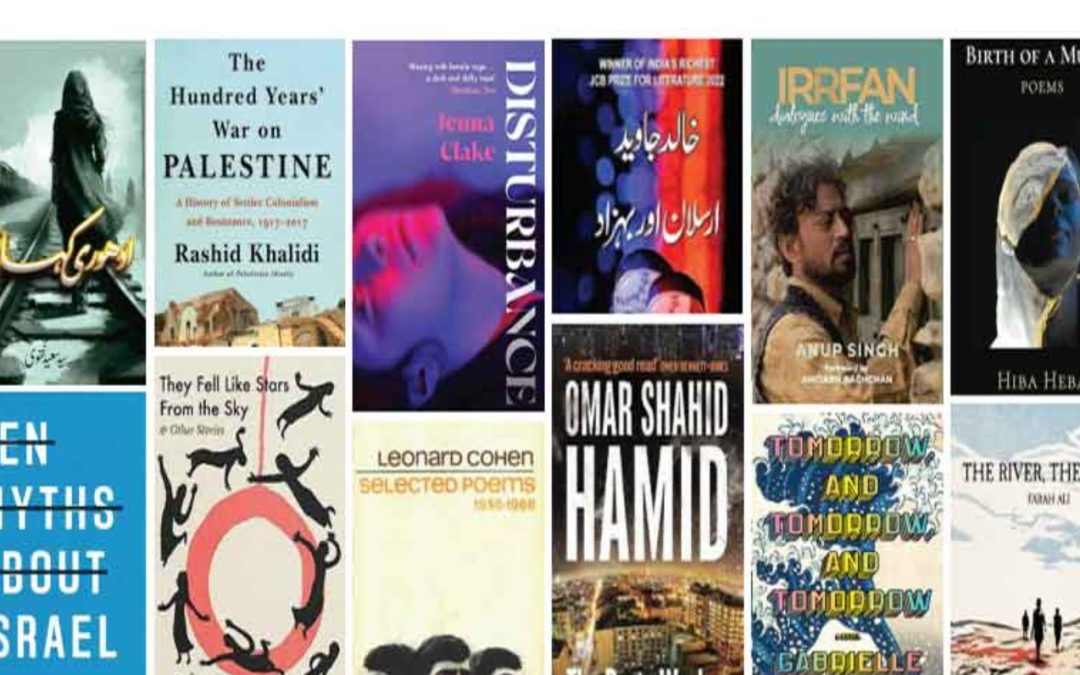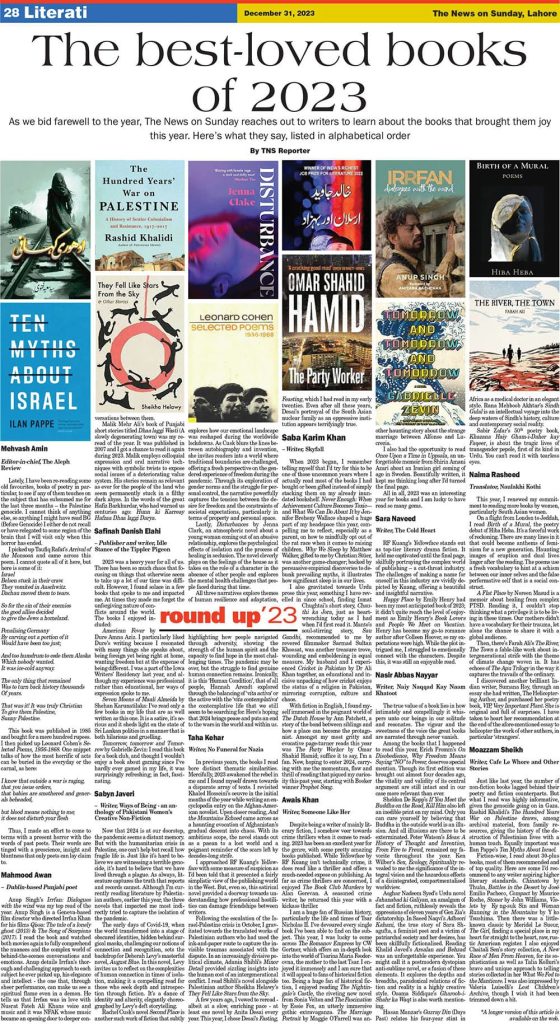Mahmood Awan (The News on Sunday, 31st December 2023)
Anup Singh’s Irrfan: Dialogues with the wind was my top read of the year. Anup Singh is a Geneva-based film director who directed Irrfan Khan for his films Qissa: The tale of a lonely ghost (2013) & The Song of Scorpions (2017). Anup is a Punjabi with roots in Rawalpindi from where his ancestors migrated to Africa. This book is flow of memories, celebrating the art and life of much-loved Indian actor Irrfan Khan (1967 – 2020). I read the book and watched both of Anup’s movies again to fully comprehend the nuances and the complex world of behind-the-scenes conversations & emotions. Anup details Irrfan’s thorough and challenging approach to each subject he ever picked up, his elegance and intellect. The one who, through his sheer performance, can make us see a spiritual flame even in a demon. He tells us that Irrfan was in love with Nusrat Fateh Ali Khan Sahab’s voice and music and it was NFAK whose music became an opening door to deeper conversations between them. Irrfan once said to him: “Who can stay unhappy listening to Nusrat Sahib?”. Anup describes silences, spaces, hesitations and pauses that made Irrfan Khan the performer, part of the audience and vice versa. Anup’s poetic text, like his reader’s heart, at times, gets filled with a deep sense of loss and longing: “The room I told you about, with the window that opens above a cherry tree, awaits you. Come.”
Malik Mehr Ali’s book of Punjabi short stories titled Dhaa laggi Wasti (A slowly degenerating town) was my re-read of the year. It was published in 2007 and I got a chance to read it again during 2023. Punjabi had many dialects and the one dialect that is the backbone of the Punjabi literary and cultural landscape is the one spoken in the baar areas. Mehr Ali’s book was composed in an aboriginal native dialect that captures the tone and texture of the Ganji and Neeli baar areas. Malik employs colloquial expression and oral narrative techniques with symbolic twists to expose social issues of a deteriorating value system. Using contrasting symbols of lights and shadows, despair and hope, the dejected native of Chak Adhay Kay Saghlay brings us face to face with the ugliness that has destroyed the very fabric of the entire social and cultural eco-system. His stories remain as relevant as ever for the people of the land who seem permanently stuck in a filthy dark abyss. In the words of the great Hafiz Barkhurdar, who had warned us centuries ago: Hunn ki Karreay Hafzaa Dhaa laggi Darya.
Published on 31st December 2023 in The News on Sunday.
https://www.thenews.com.pk/tns/detail/1142891-the-best-loved-books-of-2023


